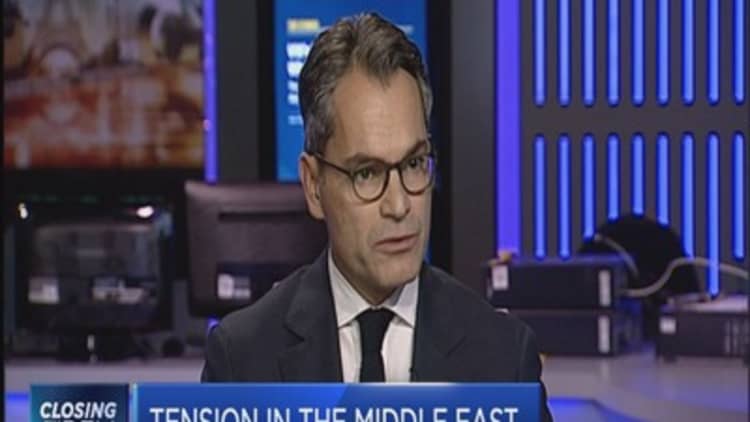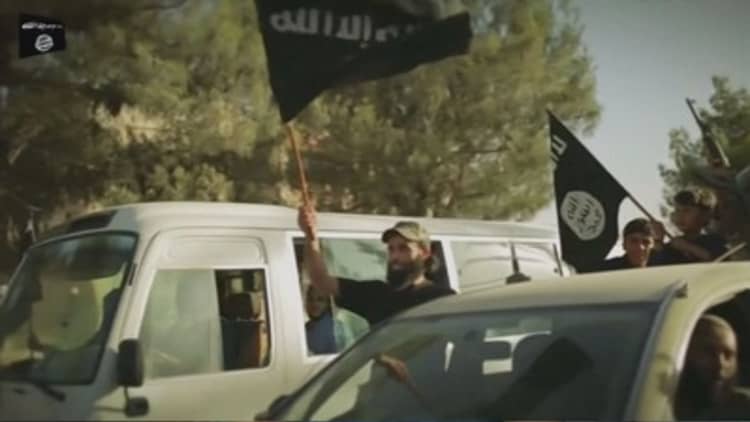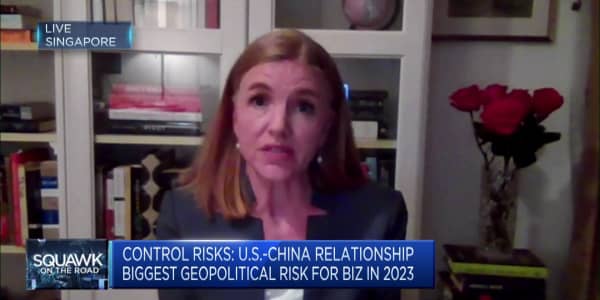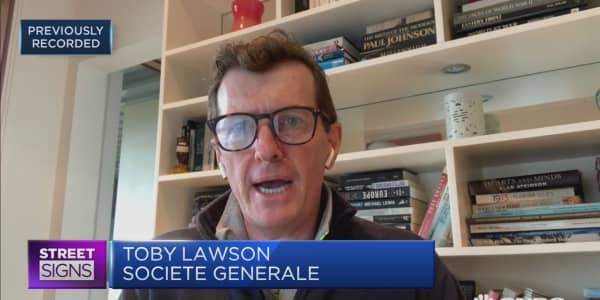


Foreign fighters from Russia and Central Asia joining ISIS have surged by as much as 300 percent since June 2014, according to New York City-based Soufan Group (TSG), a strategic intelligence consulting firm that advises governments and corporations.
Official estimates from the Russian Federation alone suggest that 2,400 Russians had joined the Islamic State by September 2015, compared to more than 800 in June 2014.
That's an increase that is proportionally higher than the flow of foreign fighters from Western Europe over the same period.
"The majority of fighters come from the North Caucasus — Chechnya and Dagestan — with a smaller but still significant number from Azerbaijan and Georgia," the TSG report stated.
The statistics featured in the report were compiled from official government estimates (wherever possible, TSG stated), reports from the United Nations, academic sources, and other studies by researchers.
"Inevitably, whatever their source, the numbers quoted are subject to an inherent level of uncertainty," TSG cautioned.
Islamic extremism has been a major concern for Russian President Vladimir Putin, said Ian Brzezinski, senior fellow at the Atlantic Council. "Despite his government's defense doctrines stating that the U.S. and NATO is Russia's greatest threat, I have always felt that Putin regards Islamic extremism to be the most immediate threat," Brzezinski said. "Putin cut his teeth destroying the Chechens. He regarded their rebellion as a manifestation of Islamic extremism. He also bolstered his own personal popularity in Russia by demonizing the Chechens as Islamic terrorists and by brutally crushing them."
Russia has been dealing with an ongoing war in the Caucasus for two decades, if not longer.
"Few realize how many civilians, Russian soldiers and insurgents in that region have been killed in that battle," Brzezinski said.
Despite his government's defense doctrines stating that the U.S. and NATO is Russia's greatest threat, I have always felt that Putin regards Islamic extremism to be the most immediate threat.Ian Brzezinskisenior fellow at the Atlantic Council
Donald Jensen, senior fellow at the Center for Transatlantic Relations, told CNBC that Russia's "Islamic problem" stems from several sources, including the Muslim population growing at a much faster rate than that of Slavic Russians and Russia's domestic terrorist threat in the North Caucasus region.
Jensen said he's not surprised at the rapid increase of fighters cited in the report.
"Despite Putin's repeated statements of alarm at the problem posed by returning jihadist fighters, the Kremlin's campaign to prop up the Assad regime is, over the long term, likely to make the terrorist threat to the Russian homeland even greater," Jensen said.
Matthew Rojansky, director of the Kennan Institute at the Wilson Center, told CNBC that the numbers seem to add up, but he disagreed with Jensen's analysis, saying that the increase in fighters has been one of the major motives for Russia to be involved in the Syrian conflict.
"It's very similar to the logic expressed by the U.S. administration during the prolonged Iraq conflict — better to fight the terrorists over there than at home," Rojansky said.
TSG's report concluded that it's too early to judge whether or not the rise is a result of Russia stepping up its involvement in the Syrian civil war, since other world powers have increased their presence in Syria.
Notwithstanding the pledge of allegiance to ISIS from one of the two San Bernardino mass killers, TSG's report stated: "Even after a year of increasing intensity, the campaign launched against the Islamic State and Jabhat al-Nusra by the United States has made little difference to the number of recruits from North America, which has remained relatively flat."
The report concludes, "The appeal of the Islamic State appears to be as strong as before, despite — or in some cases because of — the multiplying examples of its horrific violence and increasing totalitarianism."
TSG's management includes several former FBI, CIA, Department of Homeland Security and other counterterrorism officials.






